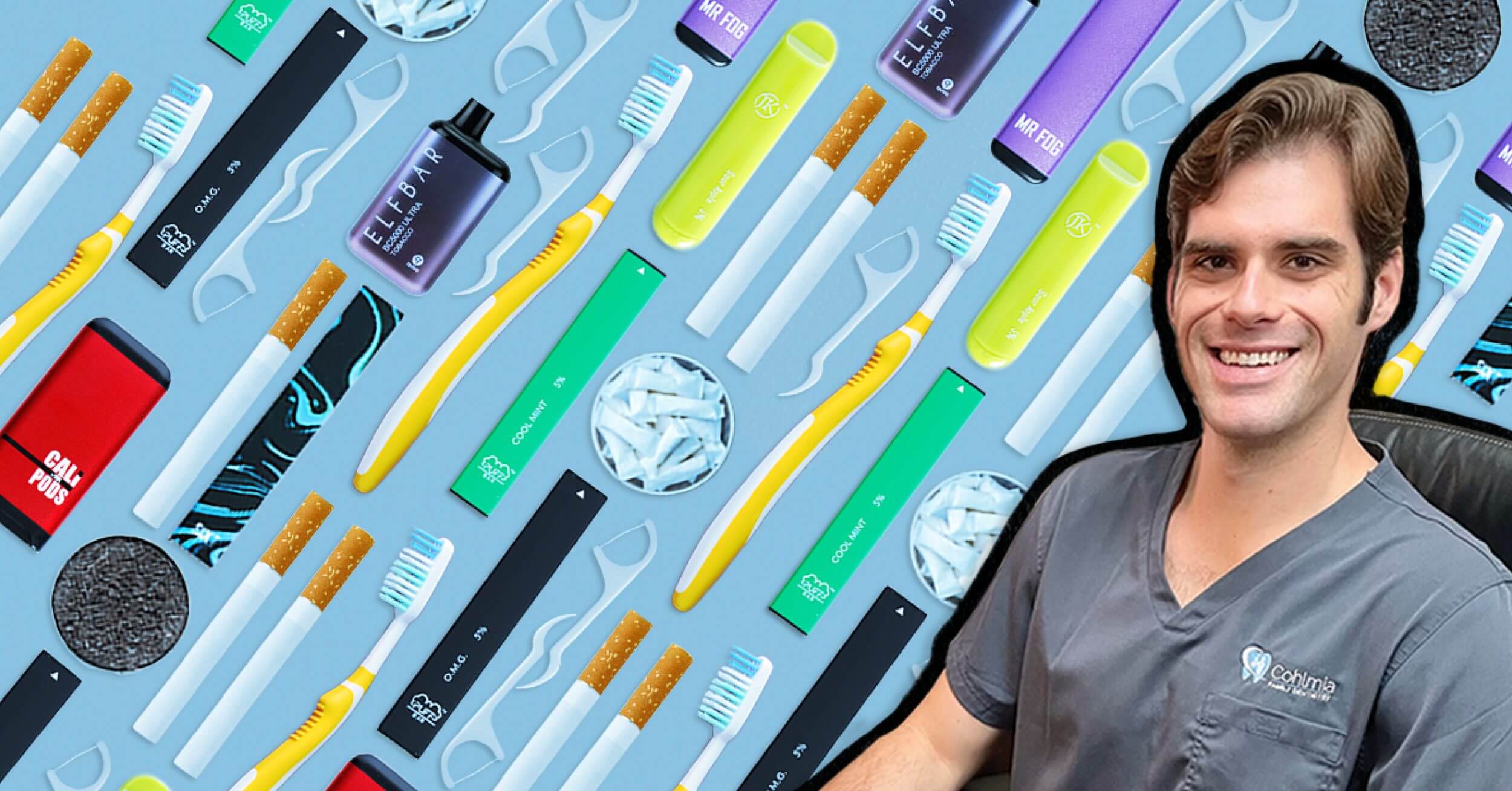Dr. Blake Cohlmia, DDS, is a dentist who prides himself on providing clear and sound advice to every patient on how to prevent diseases and have a smile they’re proud of.
Recently, Tobacco Stops With Me had the opportunity to speak with Dr. Cohlmia about the negative impacts tobacco and nicotine can have on oral health. He based his answers on research and firsthand experience, while also providing recommendations for improvement.
Can my dentist tell if I smoke, vape or dip?
“Absolutely! Signs of smoking, vaping and dipping are similar. The patient usually suffers from dry mouth, teeth stains and bad breath. Depending on the brand of dip used, there may also be cavities present as some brands add sugar to make them more palatable.
“Prolonged use of dip in the same location can cause smokeless tobacco keratosis — which can make the inside of the mouth look like a ridged potato chip and is very painful.”
How does tobacco affect teeth and gums?
“We mentioned dry mouth above. Saliva is important because it cleanses our teeth from bacteria that cause cavities. Tobacco use can also lead to early gum disease (gingivitis) which is very painful. If left untreated, it can go deep into gum pockets, causing infection, bone loss and loss of teeth.”
Does vaping damage teeth and gums?
“Because of their novelty, there is not a lot of research on the impact of vaping on dental health — though it is currently being conducted. However, even occasional use can lead to dental decay from lack of saliva and chemical burns along the roof of your mouth.
“It’s best to not even start vaping, as the high levels of nicotine can lead to years of addiction and reliance.”
What are the long-term effects of tobacco and nicotine?
“The CDC and American Dental Association (ADA) state that smokers are three times more likely to lose all their teeth than non-smokers. We want to treat gum disease before it progresses — untreated gum disease has been linked with stroke, high blood pressure, heart disease and dementia.
“Cancer is, of course, a huge concern when it comes to tobacco usage. As far as vaping is concerned, we are still studying the impact prolonged use has on dental health. However, the short-term effects are enough to make me never want to pick up a vape.”
Last question: Are the negative effects of tobacco and nicotine use reversible? If yes, how long until teeth and gums are as healthy as a non-tobacco or nicotine user?
“They’re reversible, up to a point. Dry mouth and bad breath can go away almost immediately, and early-stage gum disease is reversible with cessation, regular dental visits and an adequate home oral hygiene routine. Though the longer you’ve smoked, the longer it will take to heal. However, late-stage gum disease with bone loss is NOT reversible. Once bone is lost, it’s gone. If any teeth need to be removed, your only options for replacements are implants, bridges or partial dentures.
“Oral cancers should be addressed by a specialist — an oral and maxillofacial surgeon or oral pathologist. When a patient reaches this point, cessation isn’t enough. You’ll need a comprehensive treatment plan that could include excessive tissue removal and possible cosmetic surgeries.
“In some cases, healing never occurs. It only takes a small amount of exposure to tobacco or nicotine to dramatically impact your health and your life. So, the sooner you think about quitting, the better.”
If you’re interested in quitting, you are not alone. Talk to someone — we are all here to help you. There are plenty of resources available to aid you in your journey. Visit OKhelpline.com or call 1-800-QUIT NOW for more information. Learn what it feels like to quit vaping and the dangers of vaping.
